Beginner-friendly to forage now
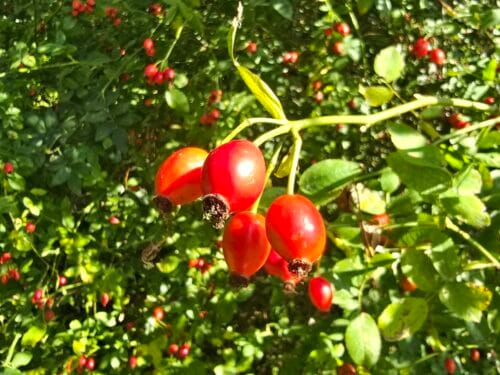
Rosehips
Pick firm, bright-red hips after first cool nights.
Remove seeds/hairs before use. (irritation)
Best for teas, syrups, jams.
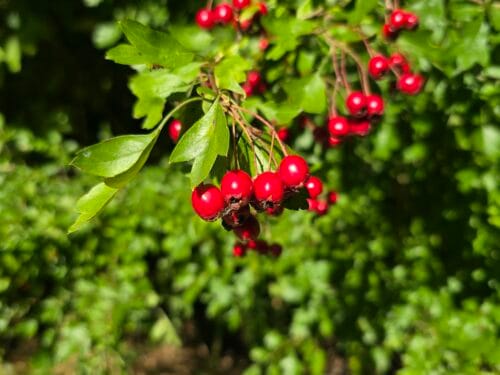
Hawthorn berries
Ripe when deep red, often still firm.
Used traditionally for heart health.
Always cook or dry before use.
- Leaves also edible, mild, nutty taste in spring.
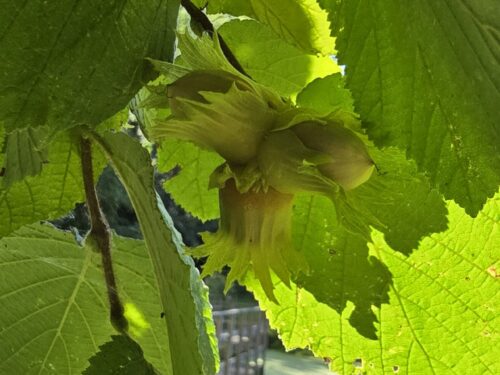
Hazelnuts
Gather fallen nuts; green ones can ripen indoors.
Crack open; eat fresh or roast.
Great kids’ activity for autumn walks.
- Store dry in shells for winter snacks.
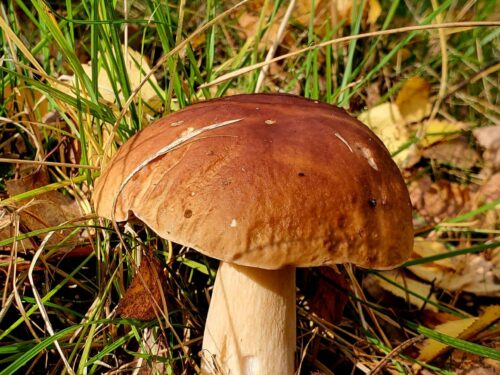
Porcini mushrooms
One of the safest wild mushrooms if identified correctly.
Thick stem, brown cap; spongy underside.
Always forage with guidance if unsure.
Quick kitchen ideas
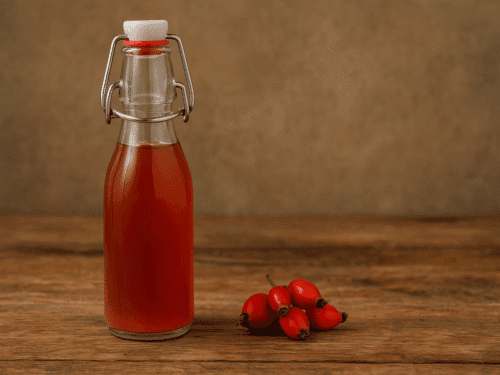
Simmer 200 g rosehips + 400 ml water, 10 min. Strain, add sugar/honey. Vitamin-C rich drizzle for pancakes.
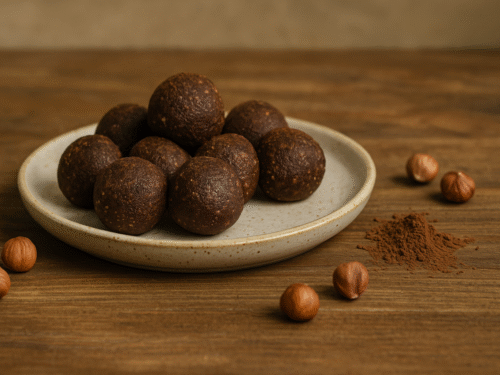
Blend 200 g hazelnuts + 6 dates + cocoa. Roll into small balls. Store cool; perfect for lunchboxes.
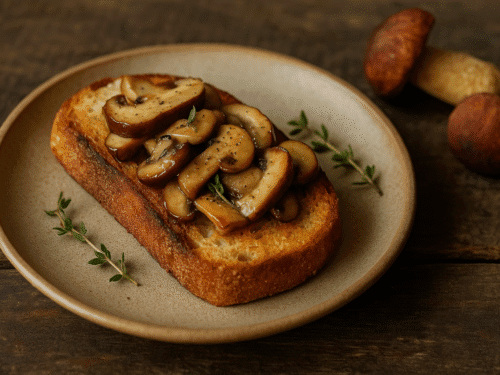
Porcini toast
Slice mushrooms, sauté with garlic + thyme. Serve on toasted bread. Simple, earthy autumn snack.
Simple herbal projects
Market & garden (in season now)
Veg: pumpkins, beets, carrots, kale, cabbages, leeks.
Fruit: pears, plums, apples, last blackberries.
With kids
Nut cracking station: let kids collect hazelnuts, crack, and taste.
Leaf pressing: collect colourful leaves, press between books → autumn crafts.
Apple picking: visit an orchard if possible.
Safety & etiquette
Be cautious with mushrooms: forage only with clear ID.
Remove seeds/hairs from rosehips (irritant).
Always cook elderberries before eating.
Forage lightly, leave plenty for wildlife.
Looking ahead to next month
Chestnuts and walnuts start falling.
More apples & pears in full swing.
Sloes (sleedoorn) appear after the first frost.
